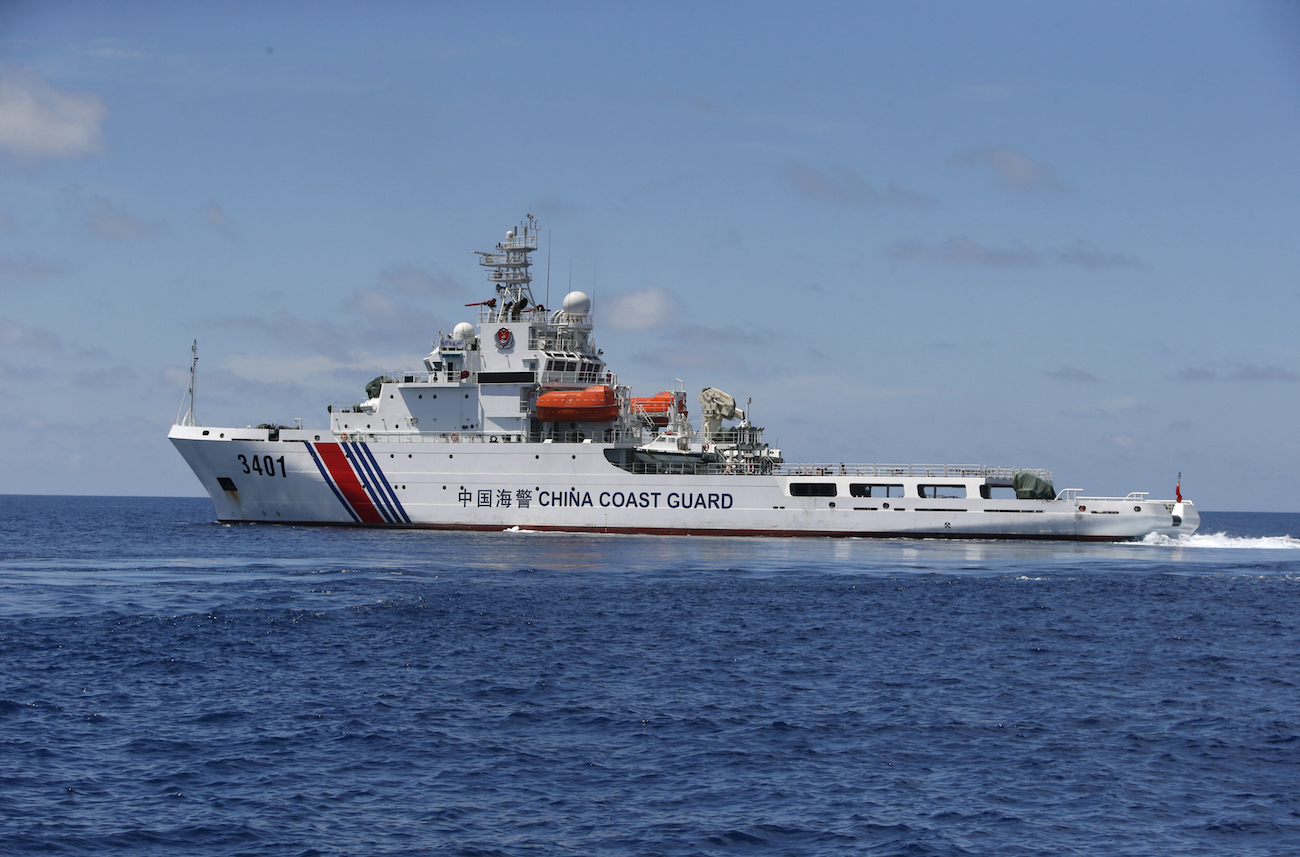
(Foreign Policy Research Institute/Felix K. Chang)
On Monday, Indonesia became the latest Southeast Asian nation to complain about Chinese aggression in the South China Sea, as Foreign Minister Retno Marsudi summoned a Chinese diplomat to protest China’s coast guard had “violated our sovereignty” and calling on China to respect international law.
The formal protest follows actions taken by China after an Indonesian Ministry of Fishery and Marine Affairs patrol ship intercepted a 300-ton Chinese fishing vessel on Saturday about 4 kilometres off Indonesia’s Natuna island chain. The chain comprises some 270 islands inhabited by 70,000 people and is located off the northwest coast of Borneo in the South China Sea.
Reports suggest a Chinese coast guard vessel came to the rescue of the Chinese fishing boat which was being towed away by the Indonesian vessel. The Chinese coast guard vessel then rammed the Chinese fishing boat, eventually prying it free and boarding it. The Chinese fishermen were already detained onboard the Indonesian patrol ship. China’s Foreign Ministry argues the incident occurred within traditional Chinese fishing grounds and the Chinese coast guard ship assisted the seized Chinese fishing boat without entering Indonesian territorial waters.

A Chinese Coast Guard vessel in the South China Sea. (REUTERS/Erik De Castro)
Indonesia has since refused Beijing’s demand for the release of the eight Chinese fishermen, which Indonesia intends to prosecute for illegal fishing. Indonesian authorities have accused Beijing on Wednesday of sharply raising tensions between the two nations, with the Indonesian Minister of Fishery and Marine Affairs Susi Pudjiastuti commenting, “We may take it to the international tribunal of the law of the sea”, following a meeting with Chinese embassy officials.
Some analysts submit the strong response by Jakarta represents a new sea change in foreign policy toward China. Indonesian authorities have traditionally downplayed similar incidents occurring in 2010 and 2013 (which resulted in the release of detained Chinese fishermen), in part over concerns Beijing could cut investment in Indonesia. This time around, a vocal Susi Pudjiastuti, who has drawn support for her crackdowns on illegal fishing, publicized the tactical details of the incident on social media and in the press.
Perhaps Jakarta can afford to play tough—the incident occurred some 4 kilometers off one of the Natuna islands—well within Indonesia’s territorial limits which are not in dispute. Beijing formally recognized Indonesia’s claim to the Natuna Islands last year, as Hong Lei, China’s Foreign Ministry spokespersons issued a public statement on November 12 asserting “the Chinese side has no objection to Indonesia’s sovereignty over the Natuna Islands.” Beijing’s acknowledgment is significant—for Indonesia’s claim to an EEZ extends inside China’s self-claimed “cow’s tongue” or infamous Nine-Dash-Line.
If Beijing accepts the EEZ regime of Indonesia, as a coastal state they relinquish any claims they may have had, with regard to fishing in the EEZ of other states, based on traditional or historic fishing rights. The argument put forth by China’s Foreign Ministry, that the trawler was operating in “traditional Chinese fishing grounds,” simply does not hold water and is not recognized under the 1982 United Nations Convention on the Law of the Sea. Furthermore, by using its own coast guard vessel as a battering ram, Beijing was in indirect violation of the Collision Regulation convention under the International Maritime Organization.
By defying international law using “traditional fishing grounds” as an excuse, China’s latest show of aggression in the South China Sea has only heightened tensions among its neighbors, and provided the region’s militaries an excuse to increase defense spending. Indonesia has reacted to the latest incident by promising to deploy more troops and better-equipped patrol boats to the Natuna islands, and to strengthen the defense of its naval base on the islands.
No doubt other nations in the region also feel threatened by the latest incident, and will react by beefing up their own militaries in anticipation of a similar incident taking place in waters they claim their own.